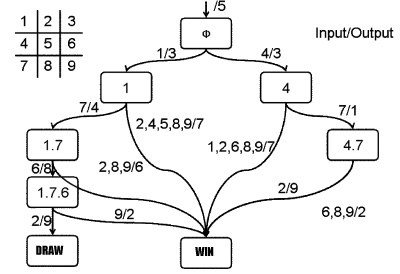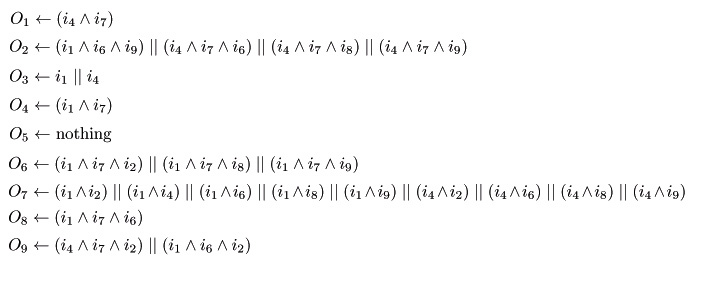Tokyo Alliance: Design/Method
From 2006.igem.org
(Difference between revisions)
| Line 1: | Line 1: | ||
[[Image:tokyo_logomini.jpg|right]] | [[Image:tokyo_logomini.jpg|right]] | ||
| - | <center>[[Tokyo Alliance 2006|Top]] : [[Tokyo Alliance: Introduction|Introduction]] : [[Tokyo Alliance: Significance|Significance]] : [[Tokyo Alliance: Design/Method|Design/Method]] : [[Tokyo Alliance: Conclusion|Conclusion]] : [[About Tokyo Alliance]] </center> | + | <center>[[Tokyo Alliance 2006|Top]] : [[Tokyo Alliance: Introduction|Introduction]] : [[Tokyo Alliance: Significance|Significance]] : [[Tokyo Alliance: Design/Method|Design/Method]] : [[Tokyo Alliance: Conclusion|Results/Conclusion]] : [[About Tokyo Alliance]] </center> |
---- | ---- | ||
Revision as of 18:35, 16 October 2006
Contents |
Systematic design concept/method
Abstract Level
State Transition Diagram
- Combination of Noughts-and-Crosses
- 362,880(=9!)[patterns] (sum up all patterns)
- 255,168 (As a game)
- 26,830 (Eliminating symmetrical pairs)
We added the following rules to reduce the number of transition functions and inputs.
- 1st
- SYANAC goes to the center of the board. (sq#5)
- 2nd
- Human goes to the specific corner(sq#1) or the edge(sq#4) of the board.
- 3rd
- SYANAC must choose sq#3
Therefore, SYANAC's conbination patterns and inputs are as follows:
- SYANAC
- 25 combination patterns(Eliminating symmetrical pairs)
- 7 types of inputs
The State Transition Diagram shown right describes SYANAC's behavior based on this rule.
Logic Gates
Here we show you the logic gates of each sq# according to the state transition.


